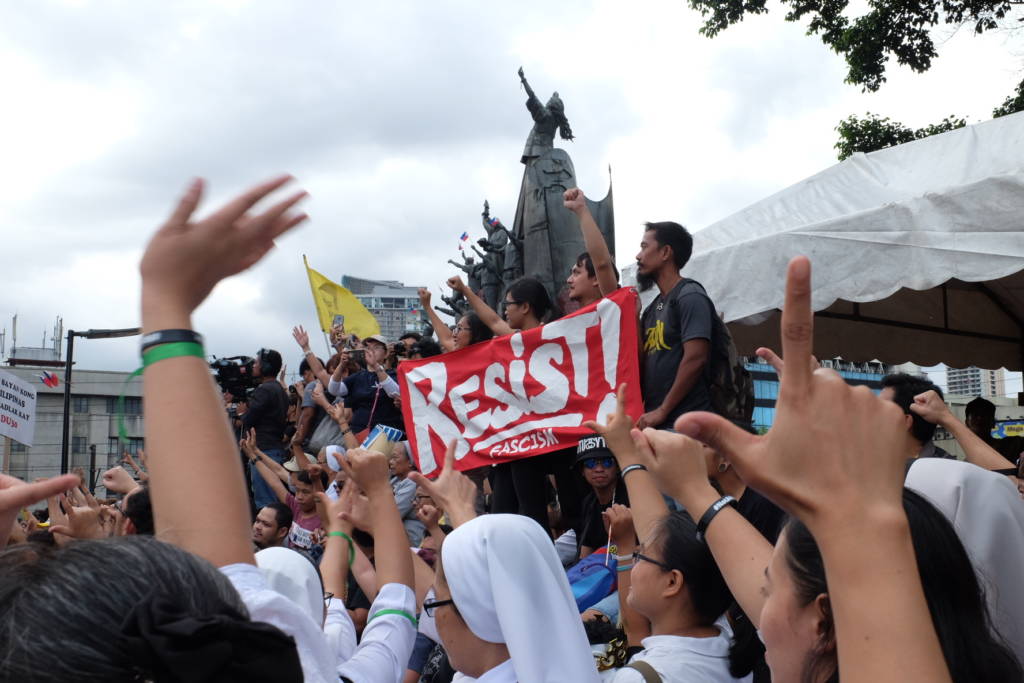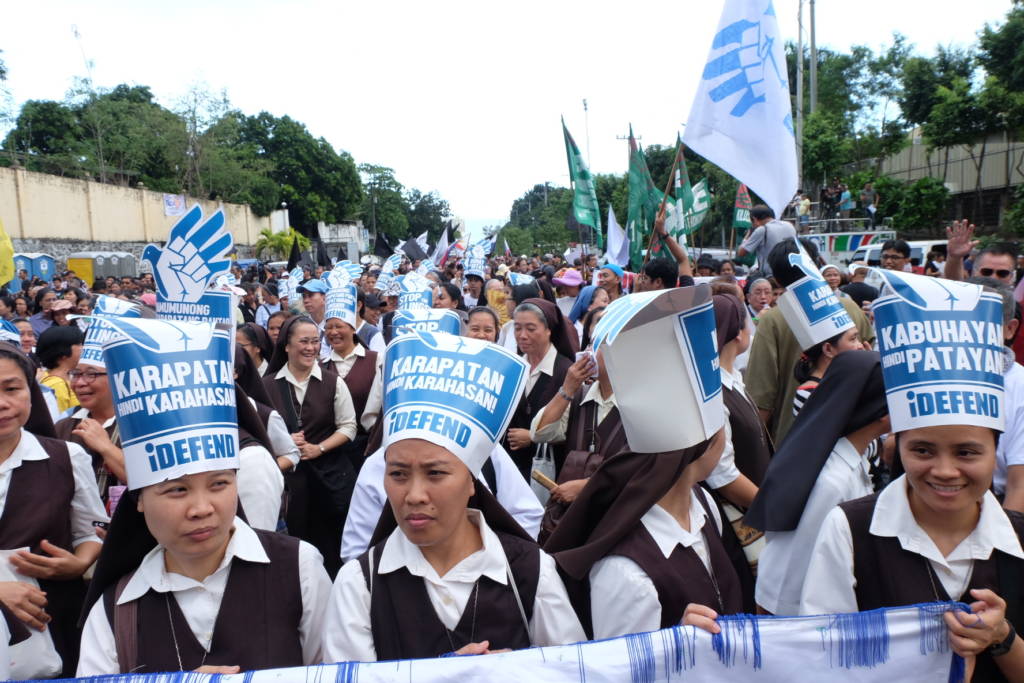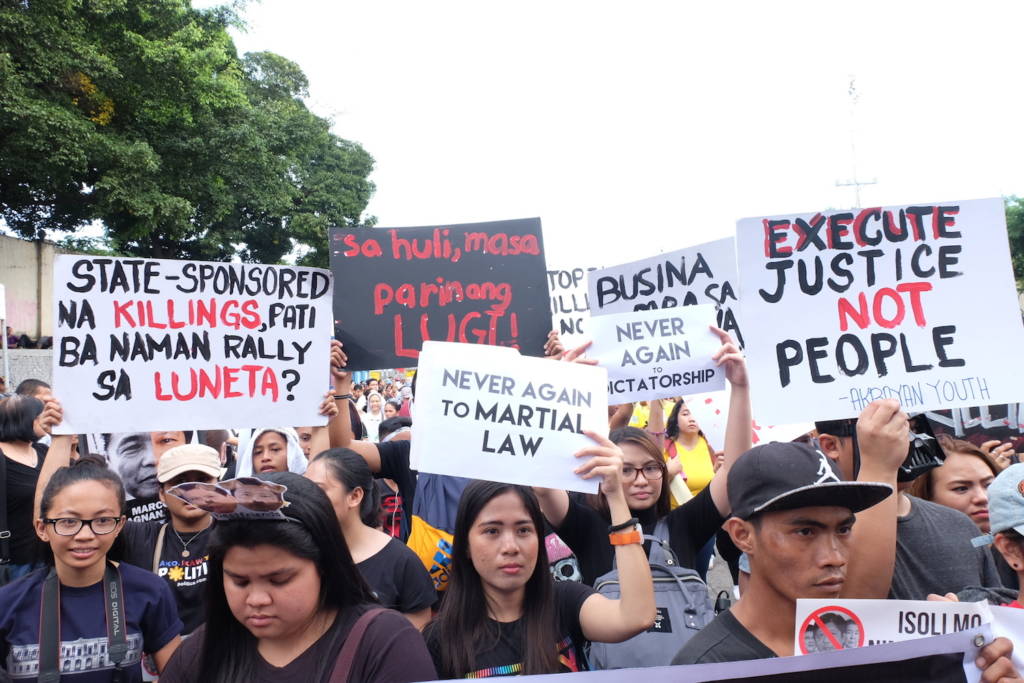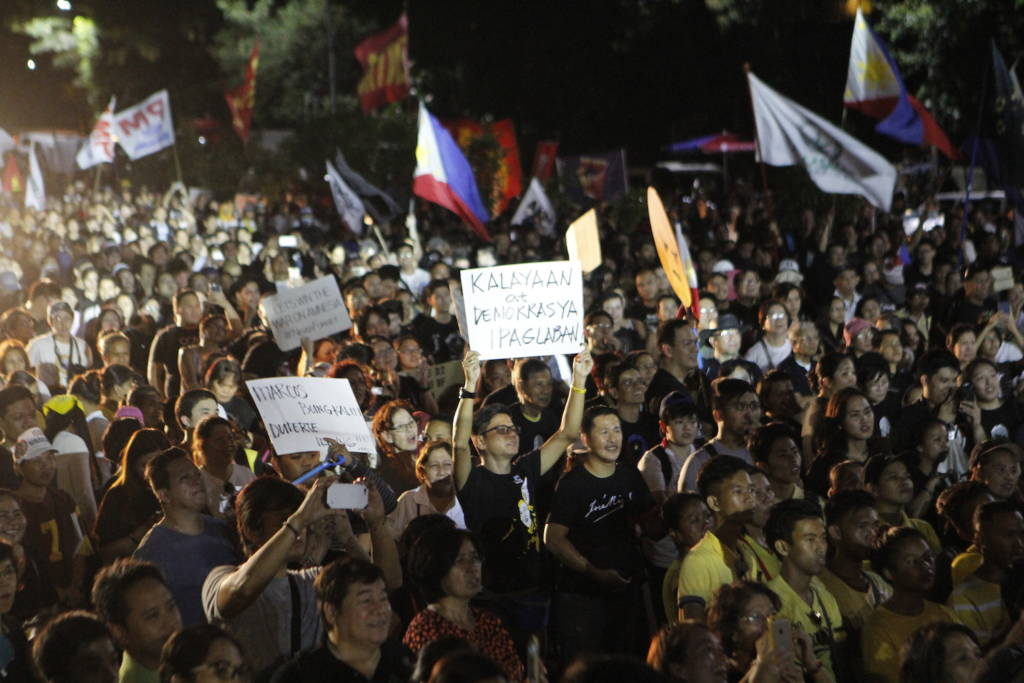By Chuck Baclagon
In the past six months or so, me and several friends in the NGO community in the Philippines seemed to have developed this nasty habit of trying to involve our respective organizations in the emerging protest movement against the waves of repression exacerbated by the government’s so-called war on drugs.
While some would think that this habit is distracting to the mandate of our respective organizations, I’d like to believe that the bottomline is that we do not work in isolation and that the issues we are trying to address are intricately connected to the existing contexts of the places we operate in.
In the case of the Philippines, rampant corruption, failure of institutions and the failure of movements to address fundamental social disparities have fed to the growing disenfranchisement of many and has fostered a climate where many feel powerless –favoring instead strongmen and silver bullet solutions to the complex crisis that besets us.

Those who gathered at EDSA 31 not only commemorated the People Power Revolution, but also called for collective resistance against fascism. © AC Dimatatac
For my part, I have come to realize that the nonprofit sector to some extent has been a party to this climate of disempowerment when we started focusing on efficiency and convenience in pushing our calls to action in the respective issues we work on. It started with petitions that we use for list building; social engagement that’s confined to likes, shares, RT’s and <3s; to twibbons and changing our Facebook profile pictures and so on.
I am not saying that these things are wrong, but I do think organizations do a bigger damage when so much emphasis is placed on these things. It leads us to fall into the same trap of promising convenient shortcuts to fixing real world problems that are products of the complex interplay of forces that impact society – we peddle the same silver bullet solutions.
This is also evident in the climate struggle where on the one hand the dirty energy industry peddles silver bullet solutions like coal, oil, gas and nuclear, while we put so much emphasis on advancing the uptake of renewable energy without giving due consideration to our individual responsibility to reduce our ecological footprints, or highlight justice and equity as foundations to the grand energy revolution that we’re advancing.

Religious faithful march against the proposal to restore the death penalty and the war on drugs that has left over 7,000 people dead. © AC Dimatatac
This brings us to the 31st commemoration of the EDSA People Power Revolution, that I joined with other friends in the nonprofit sector over the weekend. To many its celebration seems passe since it was that watershed moment that disposed of the Marcos dictatorship to put in place the elite democracy that brought us to this current crisis.
At a time when politicians and corporations would use their power to subvert evidenced based facts to maintain a status quo that brings us closer to our collective demise. Where a society was held together by institutionalized violence and pillage, it is unfortunate that many have chosen the path of relinquishing the power of their personal agency to would-be saviors and political messiahs who promise to rid us of the things we should fear.
In an age where pursuing the long and arduous task of dialogue, of facilitating synthesis from opposing views is now seen as unfashionable; human rights, equity and justice has gone out of style and at times seen as impediments to a distorted view of ‘development’; facts give way to deception masked as ‘alternative facts’; bigotry is defined as national security.
It is fair to ask the question: Is it Edsa that failed us or have we failed Edsa?
I’d like to think that it’s a combination of both. While we need to move on from the nostalgia of the Edsa Revolt we must remember that it is our collective failure that brought forth the recent, broad revival of repellent ideologies that were once presumed dead.
This challenges us to go beyond the toppling of power but rather in participating in all aspects of nation building where we make democracy function at its best as a participatory venture at its worst a critical engagement between institutions and the people.
We must not fall easily for the narrative that has been weaved by the wielders of power when they say that, discontent was never the result of conditions but rather the instigation of political agitators.

Filipinos from different sectors occupied White Plains Avenue to celebrate the 31st anniversary of the Edsa People Power Revolution. © AC Dimatatac
More than 30 years ago our experience at Edsa taught us that collective action triumphs over despots and that fragile bodies used as human shields can put to stop the arsenal of the dictatorship. The experience of Edsa guarantees us that in the face of repression, there is room for diversity in praxis, to walk side by side without holding hands, to be able to critique each other’s position so long as we all agree on non-negotiables in our common pursuit. Lastly, it reminds us that the Edsa revolt was the product of the people’s’ movements who spent more than a decade of life and death struggles to organize and raise consciousness against Marcos’ despotic rule.

Around 6,000 people, rallied to reiterate the importance of democracy given President Rodrigo Duterte’s so-called dictatorial tendencies and his policies that threaten human rights. © AC Dimatatac
For climate activists, this chapter in history challenges us to likewise seize the power from the fossil fuel industry and break free from our dependence to dirty energy. This of course requires courage: courage motivated by love for that which we hold dear, courage that speaks louder than words, courage under fire.
We must go back and reclaim our power, not only from our oppressors but also for our fearful selves who have thought that we do not have any. We must reclaim it in the sense that it should not end in its seizure from those at the top, but rather we must build it together from the bottom up.
It is about finding power where it lies and one thing that I learned is that, the answer to the question ‘do you know where the power lies?’ is a personal one.
It starts and ends with each one of us.
